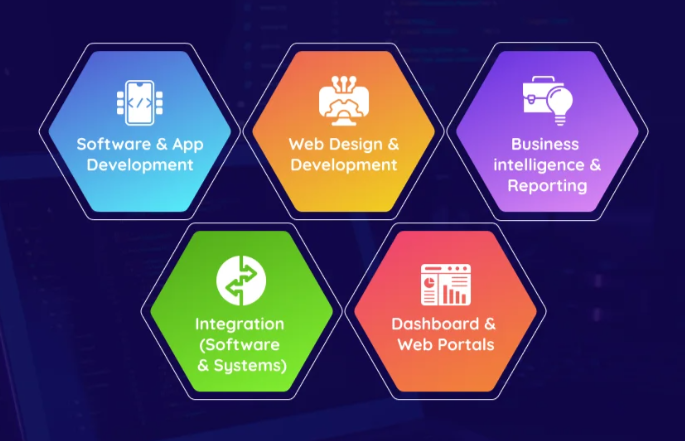In today's data-rich business environment, leveraging analytics isn't just nice to have - it's a must-have. With the right data and tools, companies can gain invaluable insights to make smarter, more informed decisions that drive growth, increase efficiency, and deliver greater value to customers.
But simply having data isn't enough. Organisations need to take a data-driven approach to decision making, where they continuously analyse information to uncover trends, patterns, and correlations that can guide strategic choices at every level.
In this post, we'll explore what it means to be a data-driven business. You'll learn:
- Why data-based decision making is critical for competitive advantage
- How to bring a data mindset into your organisational culture
- Key analytics to drive smarter choices in areas like operations, marketing, HR, and more
- Common pitfalls to avoid when leveraging data insights
- Proven best practices for becoming a truly data-driven organisation
With the avalanche of data available today, businesses can't afford to rely on gut instinct or intuition alone. Combining analytics with experience and acumen is the future of effective decision making. Read on to learn how to leverage data for smarter choices that yield real business results.
The Benefits of Data-Driven Decisions

Making decisions based on data analysis rather than intuition alone can provide tangible benefits across your organisation, including:
- Increased revenue and profits - By understanding sales data, market trends, customer behavior, and operational performance, you can pinpoint opportunities for growth and efficiency.
- Improved products and services - Customer feedback, usage metrics, and behavioral data allow you to iterate and improve product offerings.
- More effective marketing - Detailed audience insights help you optimise campaigns to drive engagement and conversions.
- Reduced risks and costs - Analytics help you measure risks, predict outcomes, and minimise unnecessary expenses or losses.
- Higher customer lifetime value - Customer analytics in form personalisation, retention strategies, and customer experience improvements.
- Better strategic planning - Market intelligence, competitive analysis, and internal data inform plans and forecasts.
- Optimised processes - Operations data uncovers redundancies and opportunities for automation and improvement.
Developing a Data-Driven Culture

Gaining the above benefits requires nurturing a data-driven culture where leaders and employees are willing to set aside biases, test assumptions, and have an openness to where data leads. Key elements include:
- Communications from executives on the importance and value of using data in decisions.
- Investments in analytics resources, tools, data infrastructure, and training.
- Alignment of KPIs and incentives to data-based performance markers.
- Fostering curiosity to ask questions and dig into the data.
- Removing hierarchical barriers to encourage data democratisation and transparency.
Leveraging Data Analytics & Metrics By Department

The types of data leveraged can vary significantly based on the department and use case, including:
Marketing
Web/social media analytics, digital ad performance, landing page conversion rates, campaign response rates, customer/market research data, and more.
Sales
CRM data, sales pipeline metrics, account profiling, rep performance data, customer lifetime value, and more.
Finance
Historical financial statements, operating metrics, capital/labor costs, profitability by product line or region, and more.
HR
Recruiting funnel metrics, cost per hire, employee retention rates, satisfaction, productivity, and more.
Product/Engineering
Product usage analytics, feature adoption, help tickets/support requests, engineering velocity, quality metrics, and more.
Avoiding Pitfalls on the Data-Driven Journey

There are a few common mistakes companies make when trying to adopt a data-first approach:
- Viewing data and intuition/judgment as mutually exclusive - they work best together.
- Assuming "more data is always better" - prioritise quality, relevant data.
- Not asking the right questions - data should inform and drive curiosity.
- Letting biases drive what data you look at or ignore.
- Lacking context/industry expertise to properly interpret the data.
- Not democratising data access to key stakeholders across the company.
Best Practices for Data-Driven Success

Based on the experience of leading data-driven companies, critical best practices include:
Conclusion
In today's highly competitive business landscape, data-driven decision making is no longer just a nice-to-have - it's a must-have capability. Companies that embrace a data culture and leverage analytics across all departments and functions will be best positioned to accelerate growth, increase efficiency, and deliver greater stakeholder value.
By democratising quality data access, investing in data literacy training, and promoting curiosity-driven analysis, your organisation can make smarter, more timely decisions that outpace less analytically-mature competitors. Just remember - the journey never ends. You must continually refine your data focus and analytics approach to stay competitive.
Take Control of Your Business With Data-Driven Insights

Struggling to make strategic decisions amidst today's uncertainty? At C9, we leverage analytics and business intelligence to cut through the chaos.
Our data experts combine the power of technology with human intelligence to unlock actionable insights for smarter choices. We integrate data from across your organisation to identify new opportunities, optimise underperforming areas, and predict future outcomes.
The result? Data-driven leaders who adapt quickly, reduce risk, drive growth and stay ahead of disruptive change.
Don't rely on gut feelings. Let C9 provide the insights you need to take decisive action in a complex business environment.
Contact our team today to learn more about our analytics consulting and how we help clients across industries become truly data-driven organisations.
Transformative Analytics Insights
Unlock the full spectrum of data-driven excellence through our curated collection of Analytics Dashboard expertise. Discover how forward-thinking organisations are revolutionising their decision-making landscape with precision-engineered visualisation solutions. Our thought leadership delves deep into dashboard optimisation strategies, user-centric design principles, and innovative analytics frameworks that transcend conventional business intelligence. Whether you're seeking to harmonise complex datasets or architect a competitive advantage through data visualisation, our insights illuminate the path to analytical mastery.
How Power BI Can Help Your Business Make Better Decisions: Predictive Analytics and Forecasting
Top 15 Analytics Dashboard Development FAQs Answered by C9